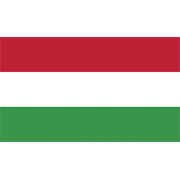Fiscal subject related
Given that a sizable portion of receipts are thrown away, one of the reasons for the upcoming shift is the new digital receipt system's potential to reduce waste production. On the other hand, it appears that online receipting also presents a variety of fresh digital opportunities.
So far, there is no official legal or technical regulation for the area of introducing e-receipts in Hungary. However, some news has been announced for this Monday. According to the Head of the Risk Analysis and Data Science Department of the NAV, if everything goes according to the time schedule, in the next period, the e-Receipt could be launched in July 2024, i.e., in more than a year, and the entire transition will take all in all up to 4 years.
Based on the information stated by the representatives of NAV, what will happen is not that the paper receipt will be digitized, but that the receipt will already be digitally created and will be an authentic receipt. However, if a customer still insists on a paper receipt when this system starts, the retailer will still be able to print it for them based on the first published details. What this also means in practice is that the current cash registers will either need to be replaced or they will need to be able to issue the new e-receipts once the system goes online.
The regulation is expected sometime in autumn 2023, and it is expected that from that period up until the summer of 2024, the whole system will be ready for launch. As stated by the NAV representative, the receipts created and stored in this way will remain available in the online system for years after their issuance.
Other news from Hungary
Hungary’s Next Phase of Fiscalization: What Retailers Need to Know About the Shift to E-Cash Registers
 Hungary
Author: Dunja Bošković Obradović
Hungary
Author: Dunja Bošković Obradović
Hungary is not announcing a fiscal revolution with headlines or sweeping political rhetoric. Instead, it is executing one methodically, through regulation, architecture, and time. For retailers and POS vendors operating in the country, the shift now underway will redefine what fiscal compliance means—not as a box to be checked, but as a system embedded directly into everyday transactions. At first... Read more



New webinar was uploaded: Recorded webinar: Approaching Hungary’s New E-Cash Register Era
 Hungary
Author: Tara Nedeljković and Ištvan Božoki
Hungary
Author: Tara Nedeljković and Ištvan Božoki
On December 19 2025, Fiscal Solutions organized a free webinar on the topic „Approaching Hungary’s New E-Cash Register Era“ The webinar was held by Tara Nedeljković, Team Lead of Legal Consultants at Fiscal Solutions, and Ištvan Božoki, Technical Consultant at Fiscal Solutions. Read more
Subscribe to get access to the latest news, documents, webinars and educations.
Already subscriber? Login


New event was created: Reminder - Join our free webinar: Approaching Hungary’s New E-Cash Register Era
 Hungary
Author: Tara Nedeljković and Ištvan Božoki
Hungary
Author: Tara Nedeljković and Ištvan Božoki
Step into this in-depth webinar designed for businesses and retailers operating in, or planning to enter the Hungarian market. You’ll discover what the new generation of e-cash registers is expected to introduce, along with the practical implications these changes may have on daily operations, technology planning, and customer interaction as well. 📅 18 December ⏰ 3 PM (CET) What we&rsquo... Read more



E--receipt requirements in Hungary – e-Cash registers in focus
 Hungary
Author: Tara Nedeljković
Hungary
Author: Tara Nedeljković
Recent legislative changes aim to replace mandatory paper receipts with regulated e-receipts, supporting NAV’s broader digitalization strategy while ensuring data security and limited tax-authority visibility. E-receipts must be generated by compliant devices, encrypted, optionally printed only on request, and may be linked to customer services such as loyalty programs only with explicit consent.... Read more



New event was created: Join our free webinar: Approaching Hungary’s New E-Cash Register Era
 Hungary
Author: Tara Nedeljković and Ištvan Božoki
Hungary
Author: Tara Nedeljković and Ištvan Božoki
Step into this in-depth webinar designed for businesses and retailers operating in, or planning to enter the Hungarian market. You’ll discover what the new generation of e-Cash registers is expected to introduce, along with the practical implications these changes may have on daily operations, technology planning, and customer interaction as well. 📅 18 December ⏰ 3 PM (CET) What we&rsquo... Read more



Choosing the Right Printer for the NAV e-Cash Register App in Hungary
 Hungary
Author: Tara Nedeljković
Hungary
Author: Tara Nedeljković
The NAV e-Cash Register app in Hungary supports a wide range of portable printers, but users should choose a device that meets the system’s technical expectations for clean and reliable receipt printing. Read more
Subscribe to get access to the latest news, documents, webinars and educations.
Already subscriber? Login


NAV Issues Detailed Guidance on Licensing Procedures for E-Cash Registers and Customer Apps
 Hungary
Author: Tara Nedeljković
Hungary
Author: Tara Nedeljković
NAV has published a detailed Notice explaining how distributors must apply for and obtain permits to market e-cash registers and customer applications under Decree 8/2025. Let’s explore this further. Read more
Subscribe to get access to the latest news, documents, webinars and educations.
Already subscriber? Login

